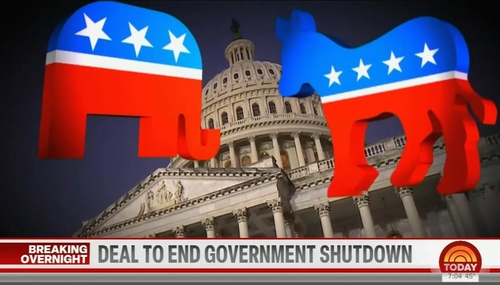NPR's Tamara Keith filed a one-sided report on Monday's Morning Edition about Mitt Romney's "apparent shift in emphasis, if not an outright reversal" on the issue of energy policy. Keith cited the "liberal news site Think Progress" as one of her main sources for her report. She also turned to a former aide to Democrats John Kerry and Deval Patrick without giving his political/ideological affiliation.
Fill-in host David Greene spotlighted in his introduction to Keith's report how "the GOP candidates have seized on price spikes as a line of attack against President Obama, largely saying the answer is more domestic oil drilling. But one of those candidates, former Massachusetts Governor Mitt Romney, used to have a position somewhat contrary to that."
After playing a clip of the former Massachusetts governor citing a 2008 line from the President, that "he'd [Obama] rather see [gas prices] go up gradually," the NPR correspondent continued with the relevant clip from the chief executive, but quickly highlighted a regular talking point of the Democratic politician on gas prices: "Earlier in the [2008] interview, Mr. Obama said there wasn't much that could be done to bring prices down artificially. Instead, he said his energy policy would look to the longer term."
Keith then outlined the Republican presidential candidate's "shift in emphasis" on the energy issue, using four successive soundbites from the politician:

ROMNEY: The issue of the overuse of energy in our country is a major issue- the overuse of oil in particular.
KEITH: This is Romney a month later on 'The Charlie Rose Show.'
ROMNEY (from 2006 interview): Look, if we could somehow magically wave a wand over our automobile fleet and replace all of our cars with the current best technology- 35 miles per gallon type technology- we'd be saving an extraordinary amount of oil.
KEITH: But this focus on fuel efficiency wasn't an aberration. It became part of Romney's energy policy during his 2008 presidential bid. And from the start of his term as governor, Romney worked to promote smart growth, to get people out of their cars, and generally, to reduce the state's carbon footprint.
ROMNEY (from 2004 press conference): I couldn't me more pleased than to be able to announce this program.
KEITH: The audio of this 2004 press conference is a little scratchy. The program Romney is talking about is the Massachusetts Climate Protection Plan. In more than 50 pages, it laid out emissions targets, and what it described as a no-regrets policy towards climate change.
ROMNEY: This plan is going to reduce pollution; it's going to cut energy demand; it's also going to nurture job growth and boost our economy, because reducing greenhouse gasses has multiple benefits.
The journalist followed this with two clips from the former Kerry/Patrick aide, Jim Gomes. Keith identified Gomes as among the "environmental advocates [who] at the time wished [Romney's] plan had gone further, but found plenty to cheer," and that he was "president of the Environmental League of Massachusetts back then." But his own profile on the website of Clark University discloses that "earlier in his career, Gomes served as Massachusetts Undersecretary of Environmental Affairs, as Executive Assistant to Senator John Kerry, as a Massachusetts Assistant Attorney General, and...In 2006, he co-chaired Governor Deval Patrick's transition working group on energy and the environment."
Near the end of the segment, the NPR correspondent played two more soundbites from Romney, and acknowledged that Think Progress had spotlighted them. She used her "outright reversal" phrase and also boosted President Obama as she closed the report:
KEITH: A lot has changed since then, both in the national dialogue and, seemingly, in Mitt Romney's position. Climate change has fallen lower on voters' lists of priorities, and Romney has gone from saying he believes humans contribute to global warming to this:
ROMNEY (from October 2011 event): My view is that we don't know what's causing climate change on this planet, and the idea of spending trillions and trillions of dollars to try and reduce CO2 emissions is not the right course for us.
KEITH: This is from a video posted by the liberal news site Think Progress. Romney was speaking last October at Consul Energy in Pennsylvania. Where five years earlier, his emphasis was on efficiency; now, it's on drilling.
ROMNEY: Let's aggressively develop our oil, our gas, our coal, our nuclear power. Look, Marcellus Shale is a huge godsend for the nation. Let's develop it aggressively. (audience applauds)
KEITH: When asked about Romney's apparent shift in emphasis, if not an outright reversal, his campaign said, 'Governor Romney believes the best way to help lower gas prices is for a long-term structural reform, which is why he supports aggressive action to expand domestic production.' He's not alone in that. President Obama is talking a lot more about drilling these days, too. Tamara Keith, NPR News.




